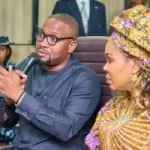In a recent statement, Nigerian activist and politician Omoyele Sowore made headlines by asserting that he had ambitions to run for the Nigerian presidency well before Peter Obi’s rise to prominence. Sowore, known for his Revolution Now campaign and his efforts with the African Action Congress (AAC), has built a reputation as a reformist eager to disrupt Nigeria’s political establishment. He first ran for president in 2019, advocating for radical changes in governance, tackling corruption, and prioritizing citizens’ welfare.
Peter Obi, on the other hand, became widely popular during the 2023 presidential race as the Labour Party candidate. Seen by many as a fresh face in Nigerian politics, particularly among youth demographics, Obi’s influence spread rapidly on social media and among grassroots communities, symbolizing hope for a different political future.
Sowore’s comment reflects his belief that his commitment to changing Nigeria’s political landscape predates Obi’s popularity and that his vision for the country remains consistent. This difference between Sowore’s long-standing activism and Obi’s recent surge in popularity highlights the varied paths Nigerian leaders take in their quests for change, as well as the shifting dynamics within the country’s political framework.
As Nigeria approaches its next election cycle, this exchange adds to the spirited debate over leadership, legacy, and the paths that different leaders take to appeal to the public.






